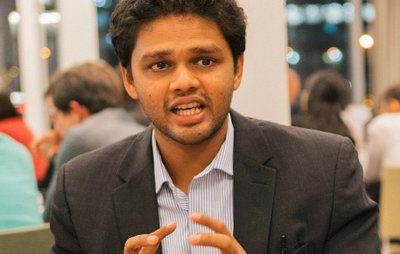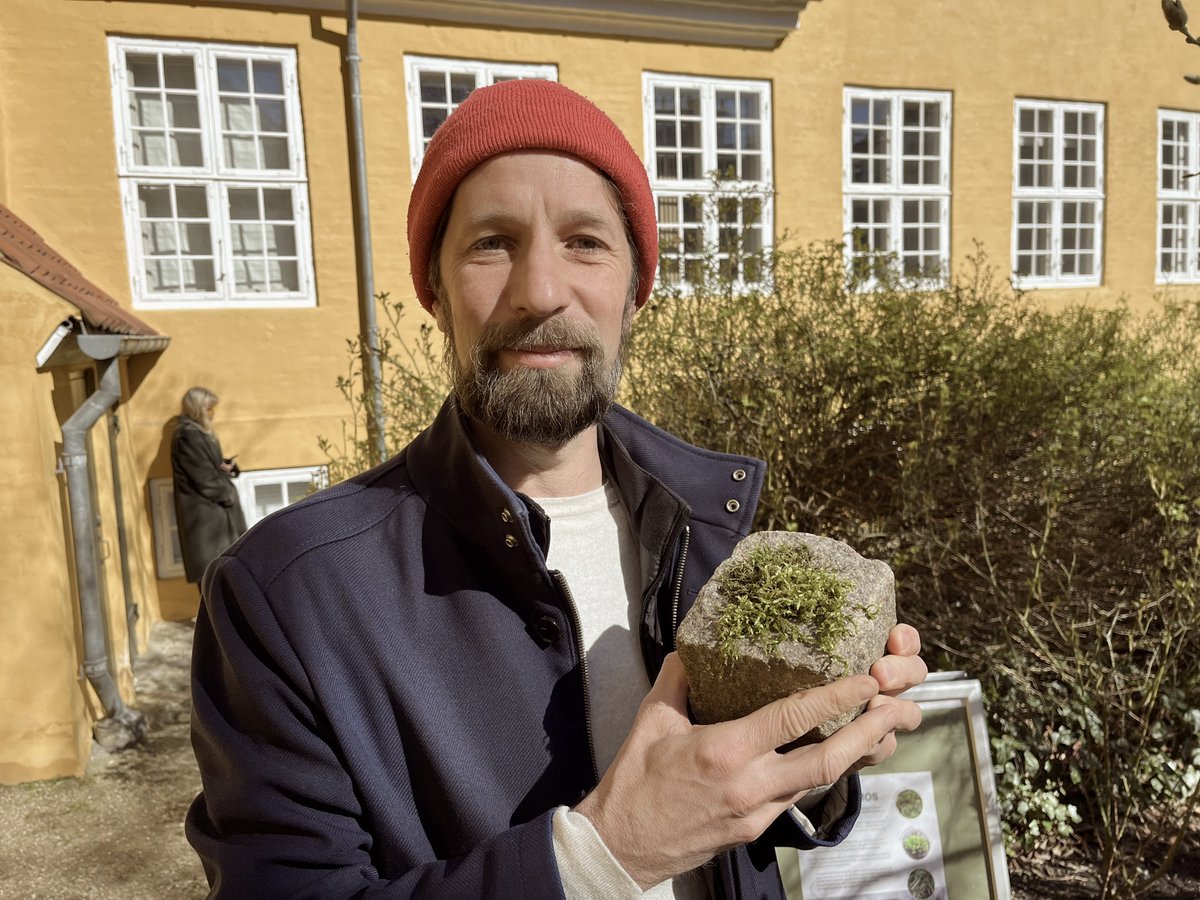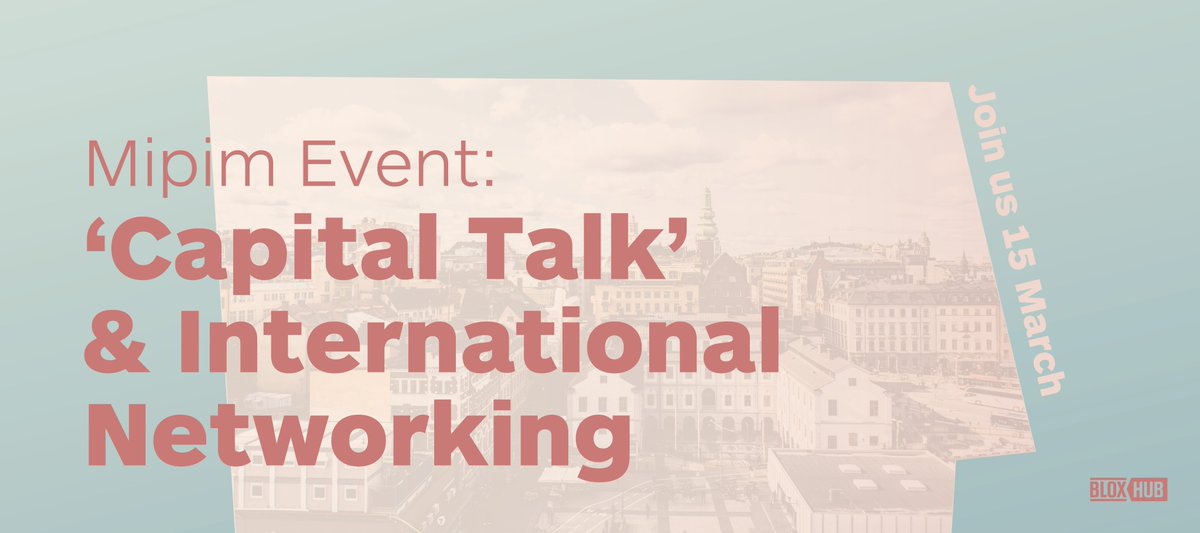Interview with Siddharth Hande, founder of Kabadiwalla Connect, a waste management company based in India, providing decentralised waste collection. Interview by Pernille Berg, Science Manager in BLOXHUB.
Siddharth Hande, Founder and CEO, was supposed to visit BLOXHUB and Copenhagen to present his social enterprise, Kadabiwalla Connect and the scientific approach behind it. In light of the COVID-19 situation, we are extremely happy that he can visit us online instead trough Science Talks Live May 15 at 15.00.
As a warm-up to the talk, we interviewed Siddharth Hande about his journey to become the co-founder of Kadabiwalla Connect. Here’s his story:
We have all seen the pictures of the overwhelming amount of waste and in the global south, the waste system is unregulated, decentralised and un-sanitised. In other words, being part of the waste supply chain is risky business when it comes to health and working conditions.
A walk on the beach
As a data scientist specialised in geographic information systems (GIS), Siddharth Hande has the advantage of being able to collect data, compile it and analyse it. And that is well worth keeping in mind because it was a walk on the beach that became his source of inspiration to map the informal waste system in Chennai.
As a volunteer for a youth group, Siddharth Hande used to bring the young people to the beach and collect rubbish. It became apparent that this work for a good cause basically meant shifting the waste from one location to another. It did not necessarily generate value. One day Siddharth Hande noticed that one guy knew what he was doing. He searched for particular types of scrap. He made a living out of being a waste-picker. Siddharth Hande set out to map what happened to the waste and why the waste picker chose specific types of waste.
Visualizing the ecosystem of waste
From tracing, tracking and mapping, Siddharth Hande was able to identify and visualise the ecosystem of waste and the role in which the informal sector plays in this ecosystem.
The informal supply chain consists of not only of waste pickers but also small scrap shop-owners and wholesalers. Each serving a purpose in the supply chain and in its right generating value and a living.
However, the informal supply chain is not a romantic portrayal of a waste system in trouble. The waste pickers have no health insurance, no rights as workers in general and risk their health when collecting the rubbish.
The data mapping enabled Siddharth Hande to document the supply chain and document that this ecosystem works but also has to be improved in order to ensure a positive change for every person working with waste.
Digitalizing the scrap
From mapping the ecosystem Sid identified the opportunity to digitalise the informal supply chain. Track every piece of scrap and avail of the agility and flexibility the decentralised supply chain actually brings to waste handling.
By digitalizing the supply chain the handling of waste becomes transparent and accountable. The transparency provides the opportunity to price the waste differently which in turn will provide better income for the waste picker. The ability to track and map the waste not only serves a waste handling issue but also becomes a philosophical matter. It becomes a matter of social contract between the different people in the densely populated areas and empowering an informal sector which usually goes under the radar.
From a systemic point of view, the digitalization ensures resilience to the decentralised supply chain which is also highly efficient. But the potential fairy tale of social improvement, health improvement, economic development and resilience does not stop here. The digitalization also becomes an enable to closing the loop and ensuring a circular resource economy.
Closing that loop is not done in one day. It requires a global network and extending the transparency of the supply chain. But it means that international companies will be able to source materials to their production and thus recycle materials with the confidence of which materials they are sourcing.
In that sense, a walk on the beach became the inspiration for making that change and taking the first step to closing a circular loop across sectors and borders.
The innovation
Kabadiwalla Connect has created RecyKle, an app that helps people get the information they need to manage their domestic waste responsibly: get simple tips to help sort waste, sign-up for composting events, and connect to the closest Kabadiwalla (small scrap-dealers that are ubiquitous in the city). The technology, which consists of an app that Kabadiwallas can use, as well as an administrator dashboard, helps drive transparency in material pricing and smarter decision making while picking up recyclables. Furthermore, India’s first smart Material Recovery Facility (MRF) is part of the innovation and uses technology to integrate into the informal waste ecosystem.
The vision
The Kabadiwalla Connect business model provides an alternative way to handle urban waste and has the potential to enable reuse of all recyclable waste that would otherwise end up in landfills. Kabadiwalla Connect believes that the ecosystem of waste pickers, small scrap-dealers (Kabadiwallas), and wholesalers represents a unique opportunity to integrate a more decentralised, cheaper and efficient model of resource recovery for cities in the developing world. If every household in Chennai sold their recyclables to their local Kabadiwalla it would reduce the amount being sent to the landfill by 70%.
“Kabadiwalla Connect is an award-winning social enterprise that leverages the power of technology to make sure our city´s recyclable waste does not end up in landfills.”







